Building on previous work experience, I determined that when discussing urban and environmental planning, it is impossible to exclude the importance of economics from many policy decisions. I often noticed that economists and policy planners/politicians had a limited understanding of each others' fields and I saw this dual degree as an excellent opportunity to bridge that gap.
Environmental Economics and Urban Planning
Spring: n/a
Summer: n/a
Overview
Critical environmental challenges face cities today, such as sustainability, climate change, energy efficiency, transportation, land use, and sprawl. To be an advocate for environmental issues, you need to have the quantitative and data skills to be able to effectively evaluate existing and future programs and policies. In MS in Environmental Economics and Urban Planning joint degree program, you will develop a quantitative and analytical skill set along with professional planning credentials to address real-world environmental and urban challenges. This degree is offered jointly by the Department of Economics and the Department of Urban and Environmental Policy and Planning (UEP).
Program Outcomes
In the MS in Environmental Economics and Urban Planning you'll develop both the professional credentials of an urban planner and the training and mindset of an economist. You'll take courses in both the Department of Economics and the Department of Urban and Environmental Policy and Planning and develop knowledge and expertise in both areas.
As a graduate of this program, you will have greater job market prospects as both a professional urban planner and an economist.
Application Requirements
- Application Fee
- Resume/CV
- Personal Statement
- In 3-4 double-spaced pages or up to 1000 words, please explain your motivations and purpose for applying to study at Tufts UEP and Economics departments. Please include the following:
- What previous experiences have brought you to the decision to apply for graduate study?
- What are your motivations to apply at this time and what do you hope to do after graduate study at Tufts UEP and Economics departments?
- What specifically about Tufts UEP and Economics departments (faculty, curriculum, courses, location, mission, etc) will support your growth from your current set of experiences to your next steps?
- In 3-4 double-spaced pages or up to 1000 words, please explain your motivations and purpose for applying to study at Tufts UEP and Economics departments. Please include the following:
- Official GRE scores (if applicable)
- GRE General Test scores not required for applicants who will have received a degree from a U.S. or Canadian institution by time of enrollment. GRE scores required for all other applicants.
- Official TOEFL, IELTS, or Duolingo English Test, if applicable
- Transcripts
- Three Letters of Recommendation
Applicants must meet all application guidelines and deadlines set forth by the individual academic departments. Applications are evaluated by both departments using the same criteria that are applied to applicants of the MS degree in UEP and the MS degree in economics. An applicant will be accepted into the program only if he/she is accepted by both departments. Applicants who are accepted into only one program can choose to enroll in the graduate degree program in that department.
Tuition & Fees
GSAS bills tuition using a per-credit billing model, meaning you are billed for the number of credits you take each semester. This billing model is used to provide students better flexibility so they may "pay-as-they-go".
| Tuition* | $1,899 per credit |
| Total Credits Required | 47-50 |
| Enrollment Status | Part-Time: 3-6 credits (typically 1-2 courses) Full-Time: 9+ credits (typically 3 or more courses) |
Estimating Tuition Costs for this Program
This example pathway outlines estimated tuition costs per semester using a typical full-time course load. This is one possible pathway to completion; actual credits, costs, enrollment status, and degree completion time may vary based on a student’s course load.
| Full-Time Pathway | Fall | Spring | Total |
| Year 1 | 12 credits | 12 credits | 24 credits |
| $22,788 | $22,788 | $45,576 | |
| Year 2 | 12 credits | 12 credits | 24 credits |
| $22,788 | $22,788 | $45,576 | |
| Estimated Total Tuition Before Aid* | $91,152* | ||
Note: this example does not account for any scholarships that may be awarded at the time of admission. GSAS offers generous merit- and need-based tuition scholarships for qualified applicants. A list of funding opportunities is provided below.
*Estimated based on 2025-2026 tuition rates. Rates are subject to change each academic year. For further information about the full cost of attendance, including health insurance, fees, and estimated indirect costs (housing, transportation, etc.), visit Student Financial Services.
Financial Aid & Funding Opportunities
At Tufts University, we believe that every qualified applicant should have the opportunity to pursue graduate study, regardless of financial circumstances. We are committed to helping you navigate the financial aspects of your education and strive to make graduate school accessible through a variety of support options.
Scholarships and Awards Available for this Program
- Merit- and need-based tuition scholarships for master’s programs: To be considered, be sure to indicate your interest within the Financial Aid section of your application.
- The Repairing and Empowering Policy and Planning Fellowship is awarded to five MA/MS students each year by the Department of Urban and Environmental Policy and Planning.
- The Alvin Levin Fellowship supports a prospective student with financial need in pursuing a graduate degree in the Department of Urban and Environmental Policy and Planning at Tufts University each year. The fellowship’s objectives reflect Alvin Levin’s long‐term commitment to community organizing and grassroots politics combined with his strong interest in a sustainable environment on a global level.
- The Future Leaders Fellowship is a full-tuition scholarship for outstanding full-time master’s students and entry-level OTD students. Future Leaders Fellows are selected by the GSAS Dean following their admittance to Tufts.
- City Year Corps members, alumni, and staff are eligible to receive a minimum scholarship award of 25% off tuition.
Work Opportunities and Awards
- There are various graduate assistantships and work opportunities available for Master’s students across Tufts. In addition, the Department of Urban and Environmental Policy and Planning offers various opportunities, including research positions and learning assistantships.
- The Graduate Student Open Access Publishing Fund provides financial support to students who want to publish their work open access.
- The Graduate Student Research Competition provides funding for expenses including equipment, materials, and supplies; research participant compensation; and expenses of travel to conduct research.
- The Graduate Student Conference Reimbursement Fund is available for students to travel to present or attend at a conference or professional meeting.
Visit our Graduate Financial Aid page for information on loans and financing options.
Meet Tufts UEP
Tufts UEP is a community of practicing scholars—our faculty, students and alumni are public-spirited individuals committed to engaged processes and just outcomes for cities and communities.
Career Outcomes
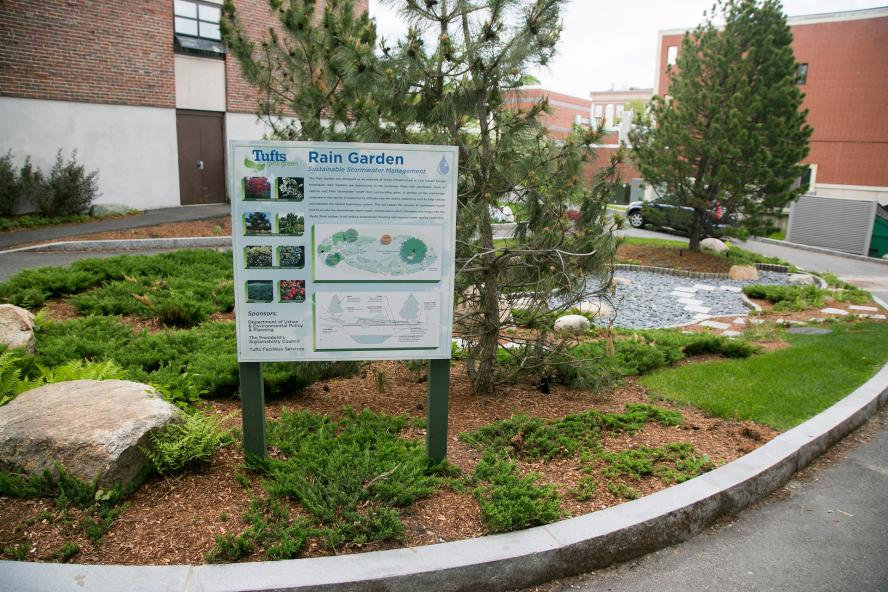
Average Salary: $85K - $126K
Overall Satisfaction with Tufts Grad Program: 95%
*Sources: GSAS-SOE Graduate Exit Survey 2020 - 2021 and Academic Analytics (Alumni Insights)
Faculty
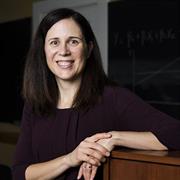
Melissa McInerney

Melissa McInerney
Research/Areas of Interest: Public Economics, Health Economics, Labor Economics, and Applied Microeconomics

Enrico Spolaore

Enrico Spolaore
Research/Areas of Interest: Political Economy, International Economics, Economic Growth and Development
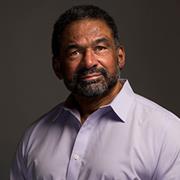
Julian Agyeman

Julian Agyeman
Research/Areas of Interest: Just sustainabilities in policy, planning and practice; environmental and food justice; antiracist panning in, and for intercultural cities; planning in, and for co-produced and sharing cities.
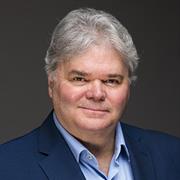
Marcelo Bianconi

Marcelo Bianconi
Research/Areas of Interest: Applied and Theoretical Economic Models and Empirics
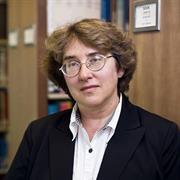
Drusilla Brown

Drusilla Brown
Research/Areas of Interest: Applied General Equilibrium Models, International Trade Policy, International Labor Standards, Child Labor

Ujjayant Chakravorty

Ujjayant Chakravorty
Research/Areas of Interest: Resource and Environmental Economics, Energy and Development, Water

Steve Cicala

Steve Cicala
Research/Areas of Interest: Energy and Environmental Economics, Industrial Organization

Christine Cousineau

Christine Cousineau
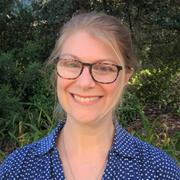
Kathryn Davies

Kathryn Davies
Research/Areas of Interest: Human dimensions of environmental change; socio-ecological system governance; equitable sustainability transformations; community resilience; coastal and marine systems

Thomas Downes

Thomas Downes
Research/Areas of Interest: Public Educational Finance and School Choice

Kyle Emerick

Kyle Emerick
Research/Areas of Interest: Development Economics, Agricultural Economics

Peilei Fan

Peilei Fan
Research/Areas of Interest: (1) human-natural interactions and their impact on environment and social equity at multiple spatial scales, particularly in cities; (2) technology and development
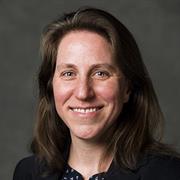
Silke Forbes

Silke Forbes
Research/Areas of Interest: Industrial Organization, Antitrust, Strategy, Organizational Economics

Laura Gee

Laura Gee
Research/Areas of Interest: Behavioral / Experimental Economics, Labor Economics, Public Economics, Diversity/Discrimination
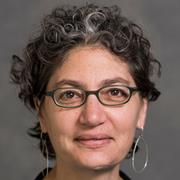
Laurie Goldman

Laurie Goldman
Research/Areas of Interest: housing policy; gentrification and anti-displacement strategies; workforce development; policy implementation and innovation; public and nonpro.t management; theories of change approach to program evaluation, social change, and movement building.

Douglas Gollin

Douglas Gollin
Research/Areas of Interest: Economic Development and Growth

Matthew Gudgeon

Matthew Gudgeon
Research/Areas of Interest: Labor Economics, Public Economics, Political Economy

Justin Hollander

Justin Hollander
Research/Areas of Interest: Land use planning; urban redevelopment; urban design; big data; shrinking cities
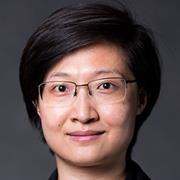
Shan Jiang

Shan Jiang
Research/Areas of Interest: Urban Analytics; Big Data Analytics; Urban Planning and Science; Spatial Data Science; Urban mobility;

Hassaan Furqan Khan

Hassaan Furqan Khan
Research/Areas of Interest: water systems analysis, urban water management, environmental justice and equity
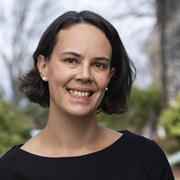
Cynthia Kinnan

Cynthia Kinnan
Research/Areas of Interest: Development Economics, Applied Microeconomics

Edward Kutsoati

Edward Kutsoati
Research/Areas of Interest: Applied Microeconomics

Jing Li

Jing Li

Penn Loh

Penn Loh
Research/Areas of Interest: • Solidarity economy movements and economic democracy • Community land trusts • Popular education, social movements, community organizing • Community and climate resilience.

Eoin McGuirk

Eoin McGuirk
Research/Areas of Interest: Political Economy, Development Economics, Applied Microeconomics

Margaret McMillan

Margaret McMillan
Research/Areas of Interest: International Trade and Investment, Structural Change, Industrialization, Africa
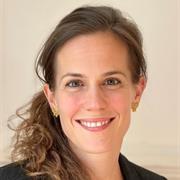
Ursina Schaede

Ursina Schaede
Research/Areas of Interest: Labor Economics, Economics of Education

Elizabeth Setren

Elizabeth Setren
Research/Areas of Interest: Economics of Education, Labor Economics

Rebecca Shakespeare

Rebecca Shakespeare
Research/Areas of Interest: Geographic information system; urban geography; housing; critical GIS
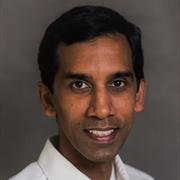
Shomon Shamsuddin

Shomon Shamsuddin
Research/Areas of Interest: Housing; Education; Inequality; Policy Implementation; Community Development

Alan Finkelstein Shapiro

Alan Finkelstein Shapiro
Research/Areas of Interest: Macroeconomics, Macro-Labor, Macro-Climate, International Macroeconomics, Macro Development
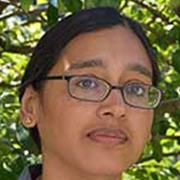
Sumeeta Srinivasan

Sumeeta Srinivasan
Research/Areas of Interest: Transportation; Health; Spatial models; Geographic Information Systems

Adam Storeygard

Adam Storeygard
Research/Areas of Interest: Development and Growth, Urban Economics
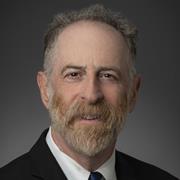
Jon Witten

Jon Witten
Research/Areas of Interest: Land use planning; local government law; natural resources policy
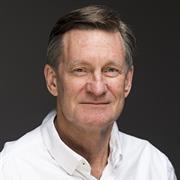
Jeffrey Zabel

Jeffrey Zabel
Research/Areas of Interest: Applied Urban, Housing, Education, Environmental, and Labor economics.